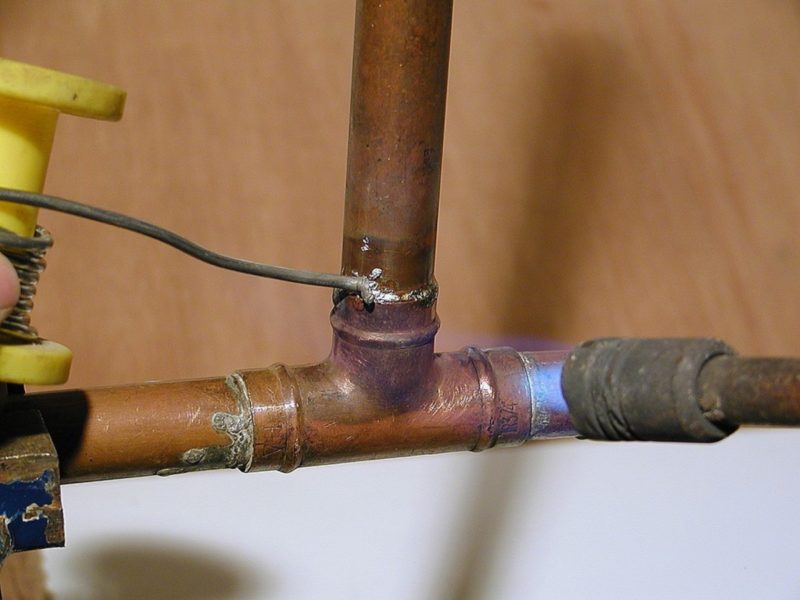Do you want to know what happens if your hot water heater freezes? Winter temperature can cause the pipes to freeze, resulting in overexpansion. This causes pipes to rupture and makes the water heater work even harder than it should.
Minor leakage may occur in some cases, which go undetected and cause substantial harm in the long run.
The water would expand as it freezes, ultimately busting the water heater tank open. If subjected to frozen water expansion, the cold water feed line, gas valve, T/P valve, and other parts will shatter, fracture, or bleed. Plus, when that water thaws, there’s the risk of harm. Freezing temperatures may force the pipes leading to the heater to swell, compress, or freeze. Pipes can fracture or leak if the water heater is outdated or positioned in a chilly or unheated part of the house.
What Happens If Hot Water Heater Freezes?
You may take some preventive measures to reduce the likelihood of the water heater freezing. It all comes down to how aggressive you are in dealing with the matter. After reading these tips, you will know what happens if your hot water heater freezes and how to prevent the water heater from freezing.
#1. The heater tank must be drained
Power outages or long holidays are the first safety precautions to take. You’ll get standing water inside if the heater is out of commission. The water freezes and expands whenever winter weather is added to the equation. Plastic parts may be harmed as a result of this technique. As a result, tankless heater companies advise emptying the tank while the heater is not in use. This advice is equally applicable if you’re traveling away for an extended time during the wintertime.
#2. Proper insulation of the pipeline
Frozen pipes are the last thing anyone wants to deal with. It’s as terrible when they rupture. You may insulate all pipes yourself to offer an extra degree of safety. Because the anti-freeze protection system doesn’t protect pipes, preventative steps like these are required. To put it another way, they’re in more danger of freezing than the heater. Insulating house pipes is a pretty straightforward do-it-yourself project. Polyethylene foam, neoprene foam, and fiberglass pipe-wrap are the most prevalent types of insulating for water heater pipes.
The Experts recommend using a fiberglass pipe cover with gas water heaters if you want something more particular for the scenario. Polyethylene or neoprene foam were two typical alternatives for insulating pipes for an electric heater. The procedure for protecting the water lines from the chilly is straightforward. You must assess the pipes, slice the pipe cover to the specifications, and fasten the lid. It may also be a good idea to read about water heater piping connections and installation.
#3. Never place your water heater in a chilly area
This component is dependent on the circumstances. On the other hand, a water heater will perform best if located in a well-insulated region. During the winter months, the heater is much less likely to freeze if it is in a warm location.
#4. Maintain source of power
We cannot control each circumstance. We wouldn’t expect any power failures. It’s still an unanticipated situation. However, we have some influence over how it will affect us. Ensure you have a power backup system if the location has regular power outages. You might employ drain-down solenoid valves as a fail-safe if the electricity goes out. A drain-down solenoid would keep a valve closed as long as it receives power. This should open the valve to empty the water heater if it loses electricity. If you’re interested, you can learn more about it. However, some people would recommend it against it. They point out that scenarios in which you must drain it while you are not present are pretty unusual.
Signs Of Hot Water Heater Freezes
Inconsistent hot water would be the first symptom of concern. Something is incorrect with the water heater, whether it’s a nice shower that abruptly becomes lukewarm or even no hot water when doing dishes. Setting the thermostat to a high temp is a simple repair. You’ll be able to adjust to the climate whenever it reaches exceptional levels this way. A rise in energy expenses is yet another symptom to look for. It’s essential to keep in mind that water heaters require electricity to provide a constant hot water supply.
It might be challenging to keep it going whenever the colder months arrive. The above situation appears to be more prevalent with tank-style water heaters. Because they hold hot water until it’s time to utilize it, they’ll have to work more to keep it hot. Some argue that a water heater will only freeze in exceptional conditions. That can’t be as easy as the weather is chilly.
Only a protracted power outage might cause the water heater to freeze. In other circumstances, if the electricity were turned off for an extended length of time without adequate winterization, it might freeze. Check the pipes leading into and out of the heater if you feel something has frozen. You may attempt to defrost the problem after you’ve identified it. Heat should be applied to the region until the water starts flowing again.
It’s A Wrap!
We are delighted to know that you have learned what happens if your hot water heater freezes. Freezing of water heater might cause serious issues, and it’s better to prevent your water heater from freezing in colder times to avoid bad things and wear and tear the hot water heater. Don’t hesitate to know these things too; read about how to change element in hot water heater and what causes too much pressure in hot water heater. Thank you, friends, for reading this article till the end.

